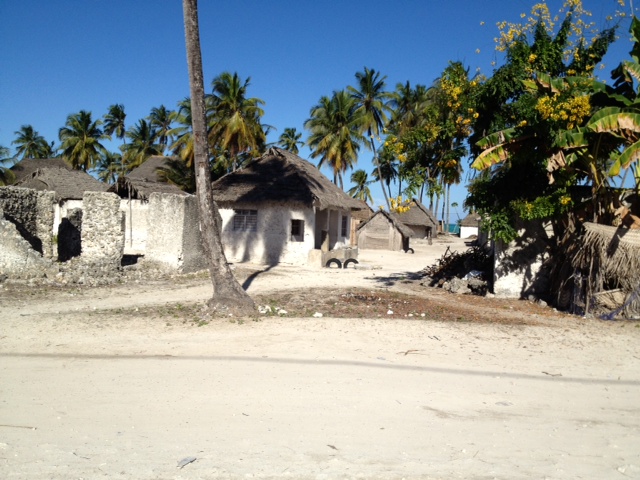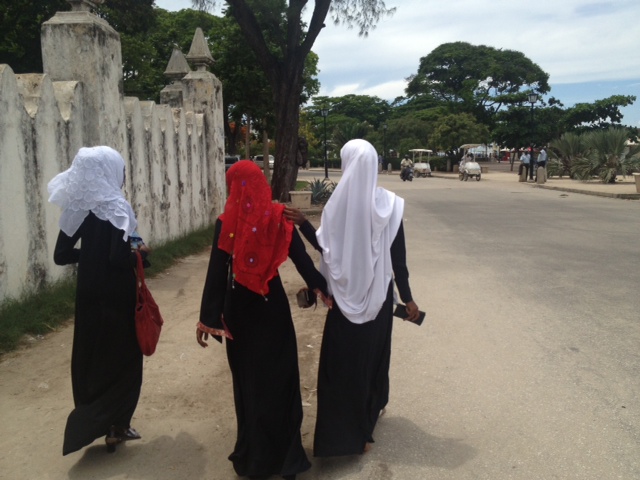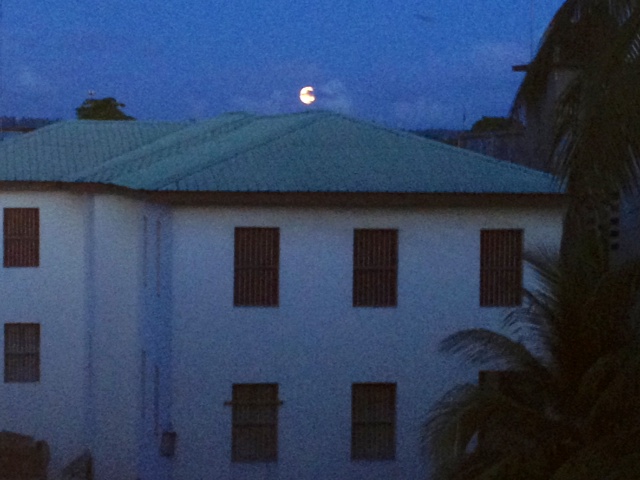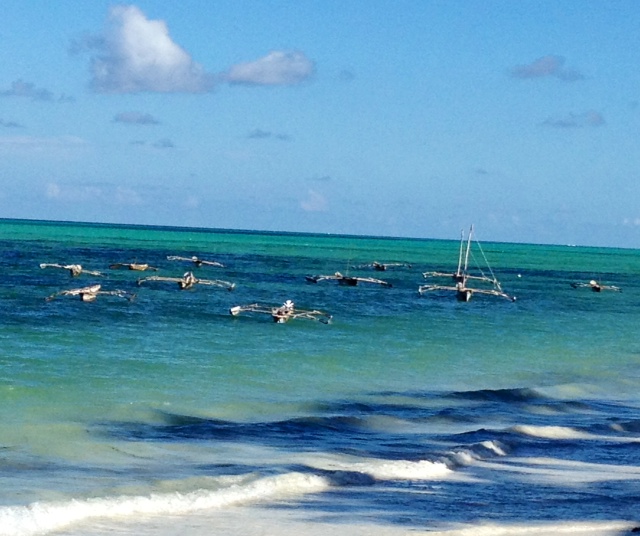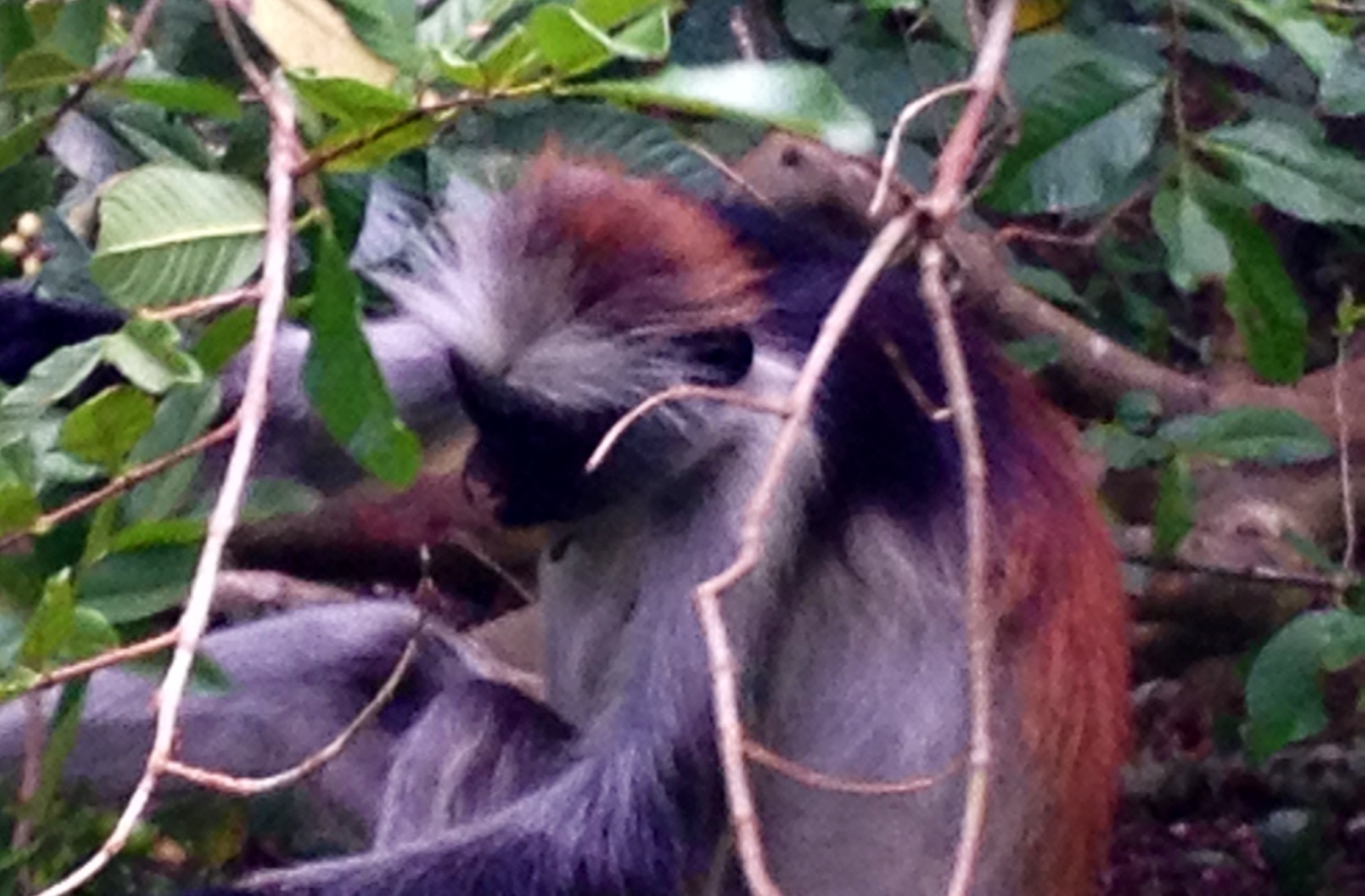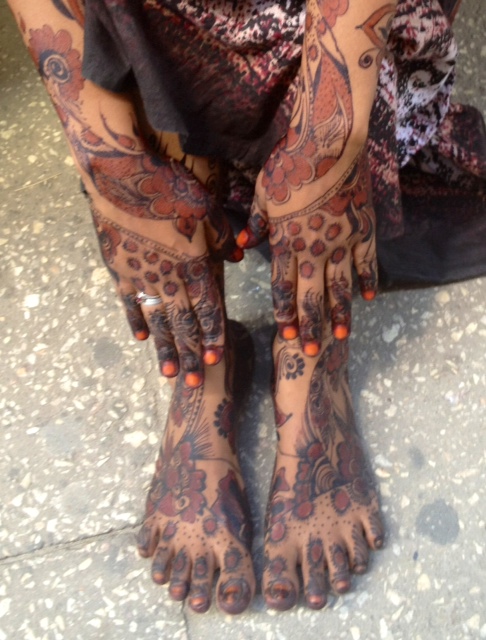Zanzibar, a name that evokes far more
exotic images than what I actually found there, reminds me of a very poor
Caribbean island, somewhat like Martinique, but without the infrastructure. Stonetown, the capital, is a bit like I
remember St. Thomas, although St. Thomas had much better hotels, much better
restaurants, and a far busier port filled with cruise ships. And that was twenty years ago. And while Zanzibar does have a significant tourist
scene, complete with street after narrow historic street filled with high and
low end shops selling trinkets, statues, carvings, batik, bracelets and
paintings that all look the same - visited mostly by Italians, Germans, Brits,
French, Kenyans, Indians, and South Africans in that order, (we were the only
Americans we encountered in our five days on the island) - it is not a
particularly attractive place, mainly, I think, because it is so equatorially
hot and oppressively poor.
Outside of the tourist scene, Stonetown
is a quite busy city, with many substantial urban peasant markets and streets
filled with Zanzibarians going about their lives in the intensely muggy heat,
almost all of the women dressed from head to foot in traditional Arab/Muslim
scarves and shawls, some veils, long sleeves, and long skirts, while almost all
men wear trousers and shirts, and most of the children run barefooted. The contrasting reality between the white
European women in their two piece bathing suits laying around sun bathing (and
drinking alcohol) on a island that is over ninety five percent Muslim rendered
me speechless for the second time in a week.
I mean consider all that visible flesh, those naked legs, those breasts
and buttocks reaching for the light! I just
can’t imagine what the Muslim men and Muslim women make of it, how they
process, understand, or integrate it. I
honestly haven’t a clue. And add to that
the immense differences in wealth and the expendable capital – the cost of a car
and driver for one day exceeds the average monthly income of the average
Tanzanian – and you have a situation that to me seems almost as unreal as it is
exceedingly real.
The outermost beaches are also fraught
with dramatic contrasts. The villages
they are set in, like Nwunge, and Paje, are miserably poor, as poor, if not
poorer, than anything I’ve seen in Southeast Asia or India, filled with crumbling
cement block houses that have few windows, no screens, and tin roofs, baking in
the sun, a village water pump or well used to fill old yellow plastic oil
containers, with everyone who lives in the village out in the street laying
around in the shade, women separated from the men, always. No real roads throughout the villages and almost
no cars or motorcycles to be seen. Just
gray white dust, coral outcroppings, sand, shells, chickens, the smell of wood
fires burning, and the smell of rotting fish.
No industry, almost no opened stores, no groceries, no gardens, no
refrigeration. And on the edges, where
the villages meet the sea, you’ll find a small resort hotel, guesthouse, or
bungalows on the beach, catering to what for all intents and purposes are naked
white men and women with more money available to spend on lunch than most of
the people who live in the host villages see in a month. I mean really, I just don’t get it.
And somewhere, under the seething
surface of the place, recorded in the rocks and the molecules that hold its history,
is a three hundred year long travail of slave markets and barbarity equal to or
exceeding in volume, mass cruelty, and inhumanity - on this tiny island ruled
by Omani sultans and Portuguese traders - of the enslavement, torture, and sale
of probably close to one hundred million human beings. No, really, one hundred million. I feel the tears, rage, blood, and despair that
seeped into the soil, that linger in the atmosphere. And while some may call that sensation only a
thought, a creation of my mind rather than a perception of anything “real,” for
me it was as real as any dream or nightmare is, hinged in reality, distorted by
imagination, but “known” as for a time in the mind as fact.
I did enjoy seeing and learning about
the colobus monkeys and the massive sea turtles that live on reserves on the
island, and it was inspiring to learn how the Tanzanian government had
convinced the villages and villagers who made part of their livelihood killing
turtles and monkeys to give up their deadly pursuit of these endangered species
in exchange for a percentage of the revenues derived from the tourists who now
pay to visit the monkeys and turtles, and how each species is now prospering. Did you know that some young sea turtles
wander thousands of miles from home before returning, like salmon, to their own
spawning ground to lay their eggs, sometimes as much as twenty five years after
leaving? Or that the colobus monkey has
no thumb? Sometimes I really feel very
doubtful about the theory of evolution, its limitations, and the limitations of
our imagination. Don’t you? I mean a primate with no thumb but with five
toes arising because it gave that monkey a selective survival advantage?
Anyhow, I did find the spice
plantations to be a botanical heaven and thoroughly loved wandering among,
smelling, and seeing cinnamon trees, cardamom, cloves, vanilla, lemon grass,
and a profusion of other spices, including a variety of peppercorns I could
pick off the trees and pop into my mouth, growing in their natural environment.
And we stayed in a guesthouse in the old Arab Quarter where no other whites
were guests for a couple of nights and it felt just fine. And I made a kind of passing friendship with
fat Mulky, the proprietor of Mulky’s World Famous Outdoor Café, who sits in his
chair unmoving except for making change and directing his employees in the sale
of crackers, soda, candies, and barbequed chicken. And we heard a fantastic middle eastern stringed
instrument player and a drummer making music unlike anything I’d ever heard before,
seated on the floor of a true Swahili restaurant, who were so gifted and
skilled, playing classic Arabic and Swahili tunes as well as Ravel and Massorgsky (sp?),
that was absolutely brilliant. And of a
gray and rainy morning, in the welcome flooded streets, I left Zanzibar Island
for the interior, unencumbered and unchained.
